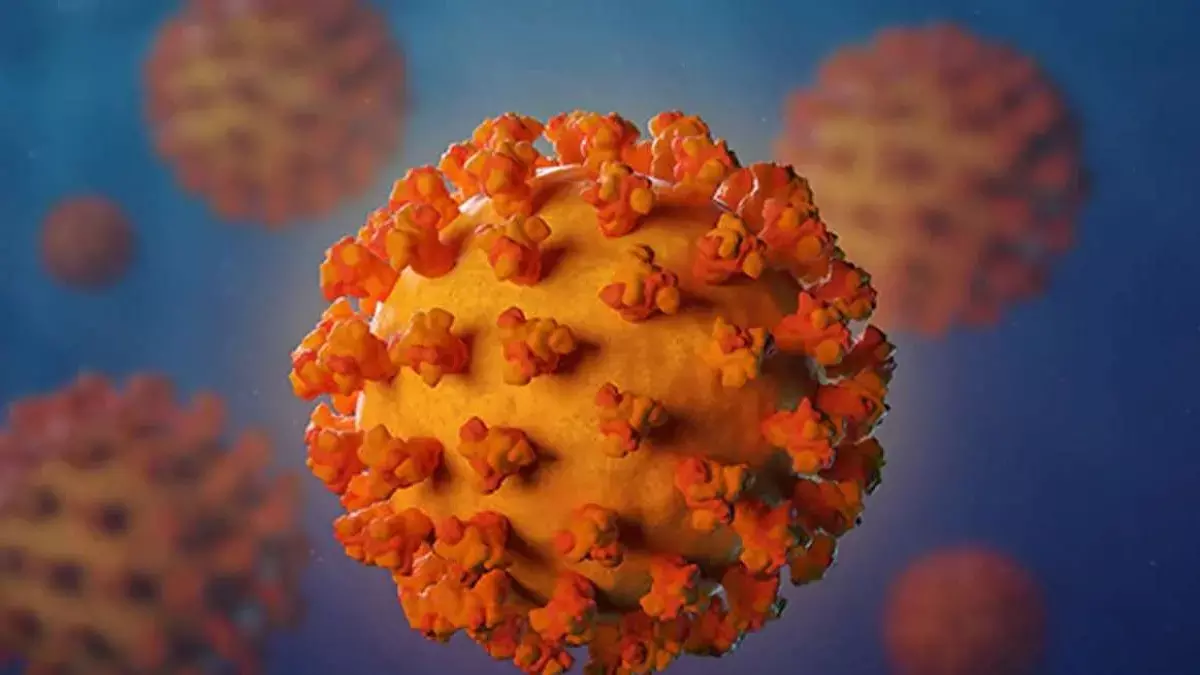- Home
- Medical news & Guidelines
- Anesthesiology
- Cardiology and CTVS
- Critical Care
- Dentistry
- Dermatology
- Diabetes and Endocrinology
- ENT
- Gastroenterology
- Medicine
- Nephrology
- Neurology
- Obstretics-Gynaecology
- Oncology
- Ophthalmology
- Orthopaedics
- Pediatrics-Neonatology
- Psychiatry
- Pulmonology
- Radiology
- Surgery
- Urology
- Laboratory Medicine
- Diet
- Nursing
- Paramedical
- Physiotherapy
- Health news
- Fact Check
- Bone Health Fact Check
- Brain Health Fact Check
- Cancer Related Fact Check
- Child Care Fact Check
- Dental and oral health fact check
- Diabetes and metabolic health fact check
- Diet and Nutrition Fact Check
- Eye and ENT Care Fact Check
- Fitness fact check
- Gut health fact check
- Heart health fact check
- Kidney health fact check
- Medical education fact check
- Men's health fact check
- Respiratory fact check
- Skin and hair care fact check
- Vaccine and Immunization fact check
- Women's health fact check
- AYUSH
- State News
- Andaman and Nicobar Islands
- Andhra Pradesh
- Arunachal Pradesh
- Assam
- Bihar
- Chandigarh
- Chattisgarh
- Dadra and Nagar Haveli
- Daman and Diu
- Delhi
- Goa
- Gujarat
- Haryana
- Himachal Pradesh
- Jammu & Kashmir
- Jharkhand
- Karnataka
- Kerala
- Ladakh
- Lakshadweep
- Madhya Pradesh
- Maharashtra
- Manipur
- Meghalaya
- Mizoram
- Nagaland
- Odisha
- Puducherry
- Punjab
- Rajasthan
- Sikkim
- Tamil Nadu
- Telangana
- Tripura
- Uttar Pradesh
- Uttrakhand
- West Bengal
- Medical Education
- Industry
Heat shock protein gp96, a predictor of COVID-19 severity: Study

Plasma gp96 may be a useful prognostic and predictive biomarker for disease severity and outcome of COVID-19.
China: A recent study reported by the journal Microbiology Spectrum suggests that high levels of heat shock protein gp96 in COVID-19 patients are predictive of unfavorable prognosis and severe disease.
"Early and effective identification of severe COVID-19 may allow improving the outcomes of associated severe acute respiratory illness with fever and respiratory symptoms," wrote the authors. "Some heat shock proteins (Hsps) are released during cytotoxic injury, oxidative stress, and viral infection and behave as danger-associated molecular patterns (DAMPs)."
Against the above background, Shixiong Yang, Nanning Municipal Center for Disease Control and Prevention, Nanning, China, and colleagues aimed to analyze plasma concentrations of heat shock protein gp96 in nonsevere (including mild and typical) and severe (including severe and critical) patients with COVID-19 to evaluate its potential as a predictive and prognostic biomarker for disease severity.
Based on the study, the researchers found the following:
- Plasma gp96 levels that were positively correlated with interleukin-6 (IL-6) levels were significantly elevated in COVID-19 patients admitted to the hospital but not in non-COVID-19 patients with less severe respiratory impairment.
- Significantly higher gp96 levels were observed in severe than nonsevere patients.
- The continuous decline of plasma gp96 levels predicted disease remission and recovery, whereas its persistently high levels indicated poor prognosis in COVID-19 patients during hospitalization.
- Monocytes were identified as the major IL-6 producers under exogenous gp96 stimulation.
The researchers concluded, "elevated levels of plasma gp96 correlate with disease severity of COVID-19 patients, supporting its potential usefulness as an inflammatory biomarker for predicting outcome for severe COVID-19 patients.
"The results are preliminary with limitations of a small number of patients, selection bias, and the use of a single parameter. But the results are of interest because gp96 appears to be a potential predictive and prognostic biomarker that is easily detectable in the blood of patients," they wrote. "The development of such a biomarker would help to phenotype patients according to the severity and outcome of the disease."
Reference:
The study titled, "Plasma gp96 is a Novel Predictive Biomarker for Severe COVID-19," was published in the journal Microbiology Spectrum.
DOI: https://journals.asm.org/doi/10.1128/Spectrum.00597-21
Dr Kamal Kant Kohli-MBBS, DTCD- a chest specialist with more than 30 years of practice and a flair for writing clinical articles, Dr Kamal Kant Kohli joined Medical Dialogues as a Chief Editor of Medical News. Besides writing articles, as an editor, he proofreads and verifies all the medical content published on Medical Dialogues including those coming from journals, studies,medical conferences,guidelines etc. Email: drkohli@medicaldialogues.in. Contact no. 011-43720751


